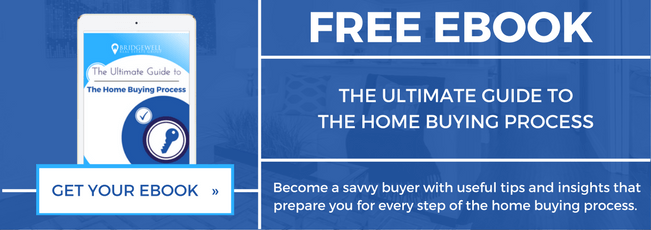How To Get a Deal on a House in Vancouver
Our Top 10 List on How to Avoid a Bidding War
How To Get a Deal on a House in Vancouver: Our Top 10 List on How to Avoid a Bidding War
Being a buyer in Greater Vancouver can be difficult. We’re still in a hot real estate market, and people are always looking for a “good deal.” The tough part is, there’s not a lot to be found. The market is smart, and prices naturally adjust due to supply (inventory) and demand (# of buyers at a time), and as a result houses are either more expensive, or less expensive.
With that being said, it’s not impossible to find a “deal” price wise. We’ve got a couple tricks up our sleeve to help you find properties that may be in lower demand than others, and essentially help you avoid a bidding war. Opportunity knocks – so read our top 10 list of what to look for and how to get a deal on a house in Vancouver:
- Search for houses that have been on the market for more than 20 days. The reason why we say 20 days is because once you factor in the showing schedule, the offer presentation date, subject removal, and the time it takes the realtor to update the MLS, typically the listing will be around 20 days “old.” This number can be higher in some neighbourhoods and based on the type of property, but in a hot market, a listing that’s been on the market for more than 20 days may be seen as “stale” in the minds of buyers. Also, make sure your realtor is checking the history of the home. Some agents like to trick the market and re-list the property to make it look like it was just put up on the MLS, but really it has been sitting on the market for quite sometime. You will most likely be able to avoid a bidding war, and you may have the opportunity to buy at lower than the list price. *However, be careful, the listing price is just a strategy and many buyers make the mistake of “thinking” they just got a deal, when really they just paid $20,000 over the market value despite receiving it for $30,000 under asking. Have your realtor do the research and evaluate the comps to determine whether you’re really getting a deal.
- Watch for properties that are nearing the end of their listing contract and are about to expire. In this case the house has probably been on the market for at least 60 days, but probably more like 90-180 days. Those sellers may have already bought their new home, but their current home isn’t selling. In this case, they may be especially motivated to sell because they don’t want to go through the hassle of re-listing their home with another agent or renewing with their current one if they’re already unhappy. You’d be surprised to see how many homes sell on the 89th day of their 90 day contract. Have your realtor keep an eye on these.
- Timing is everything. Real estate in Greater Vancouver is largely seasonal, often times due to the weather. If you have a semi-flexible schedule, try not to hunt for a home in the spring/summer season. (Typically March-July is extremely busy). Things typically are slower in December and January, and also near the end of summer around August. Do what everyone else isn’t doing, and you’ll find yourself with less competition.
- Do the work and snag a fixer upper. Real Estate is so emotional, and renovations can have a huge return on investment for the seller. If someone walks in to a home that is deemed “ugly,” they can’t see past the dirty carpet, outdated kitchen, and retro bathroom. Target the houses that require a bit of work, and you’re less likely to find yourself in a bidding war. The plus: you can make it your own and design it exactly how you want it.
- Buy what everyone else isn’t buying. Yes in this case you will have a harder time selling the home in the future, but you’ll most likely get the home for under or at asking if the home is on a “T” (road leads towards the front of the home), is on a busy road, is in a less desirable neighbourhood (do this one with caution), or again, is in need of some TLC. These homes typically have a lower demand, and will have been on the market for longer than average.
- Go view the homes with the horrible pictures. Some realtors don’t take marketing seriously, and with roughly 95% of home buyers first looking online to do their searching, we believe that professional photography plays a pretty big factor in to whether or not you’d book a showing. Try your best not to judge a book by it’s cover, because that’s what everyone else will be doing. The house probably looks a lot better than you think (and it if doesn’t, give it some TLC and upgrade it!), and the realtors just don’t understand that a photo on their iPhone just doesn’t compare.
- Consider For Sale by Owner (FSBO) properties. Some sellers don’t see the value in a realtor, and think it’s easy to sell a home so they take the task upon themselves. While it works for some, the majority have a struggle to sell and either take it off the market or end up hiring a realtor. In our experience, FSBO’s don’t market their home properly, aren’t co-operative with showings, and typically aren’t interested in working with a buyer’s agent. Honestly, the majority of realtors we know avoid working with FSBO properties because it can be stressful for their buyers and themselves. They’re not professionals, and they typically don’t know the process. This could be an opportunity for you as a buyer – just make sure that you are working with an agent. First of all, a buyer and a seller that both don’t have everyday experience with the real estate contracts, process, and negotiations usually isn’t the best idea! Secondly, your agent will be able to control this kind of negotiation and can pick out any contractual or legal mistakes the FSBO might have missed or left out.
- Target strata properties that are going through a rough patch. This could be, for example, a special levy paid by the owners of the property to have the roof re-done. Something like this may be motivating a number of sellers in the building to list their home, and at the same time making buyers weary of the building. If the seller is motivated enough and it’s been on the market for a while, they might actually pay for the levy for you. Of course, in this scenario make sure that you receive all of the strata documents (like the depreciation report and engineering report) to ensure that these big bills will not be consistent and your long-term value will not be affected.
- Think about purchasing a pre-sale property. If you get in early enough, pre-sale properties in Greater Vancouver have a fantastic history of appreciating – even before the completion date has arrived. A number of people who purchase a pre-sale actually assign their contract prior to completion (with the approval of the developer) and make hundreds of thousands of dollars. If you’re thinking about purchasing a pre-sale, make sure to use a realtor that has history in pre-sales, understands the contracts (they’re different than re-sale residential contracts), and has a good understanding of the area of purchase and it’s potential to appreciate.
- Consider a leasehold building. A leasehold unit is when you would own the rights of possession to the property but not the land that it is on. You see this often in the University Endowment Lands and some pockets of False Creek. If you were to take 2 direct comparables, in the same location, same quality, same structure, and one was a leasehold and the other a freehold, the leasehold will almost always be cheaper. You’ll most likely get a good deal, but keep in mind that these properties are typically less likely to appreciate and will have a lower re-sale value, specifically when the lease is nearing its end. For more information on leasehold properties click here.
We know that multiple offer scenarios can be overwhelming, and that’s why buyers are always looking for these “deals.” As long as you are aware of the pro’s and con’s of each of the 10 ways to avoid a bidding war above, then we say – go for it! With that being said, multiple offer scenarios aren’t always that bad if you have the right realtor to walk you through it. Oftentimes we can foresee the price that the home will most likely end up at, and advise you accordingly. If you’re looking to buy a home in the Greater Vancouver area, we can help to determine your options and put you on a path to home buying success. Give us a call: (604) 319-0200.



